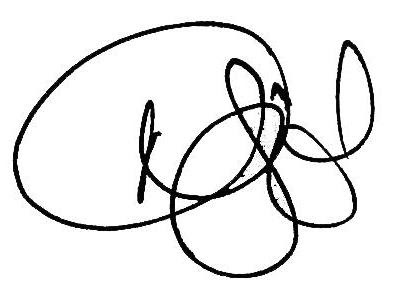by Nigel Savage
Thursday, June 13, 2019 | 10th Sivan 5779
Dear All,
Do we strive to change the world through fear or through a positive vision?
This is not a fake question, or the set-up for an obvious answer.
I’m more confused by this question, at the moment, than at any time in my life.
I used to feel that the answer was “through a positive vision.”
The word hazon is Hebrew for vision, and our name symbolized this view. Yes, we needed to tackle complex and depressing issues; but we would do this by inspiring people, and by sharing a positive vision for change.
And now I’m not so sure.
Most people most of the day simply get on with our lives. This is the nature of being human. It’s rare that there is an acute incident – a heart attack, a traffic accident, a major fire, an act of terrorism in our own community – that really cuts through normal daily life. Other than that we toggle between obligations and celebrations, work and play, family and friends and work and study.
But the climate challenge that faces the world right now is absolutely real, and it is worsening. A report from BP last week revealed that in 2018 extreme weather events themselves increased global carbon outputs.
This is a further negative feedback loop, to add to the ones that we already have.
And it’s against this backdrop that I spent last weekend at a really glorious Shavuot retreat at Isabella Freedman. (Stay with me, through this wrench of gears. This will indeed loop back.) It was Hazon at our absolute best. Bringing people together across difference. Beautiful davening. Inspiring kids’ programming. A quite remarkable Hallel, in which participants of quite different backgrounds and observances came together and sang our hearts out and blew the roof off. And then our unique Shavuot goat parade – our first-fruits, reconnecting with land and with Jewish tradition in a way that is memorable and creative and celebratory.
Part of the pivot that we’re about to make, as we start to implement our strategic plan, is that Isabella Freedman is indeed a Jewish lab for sustainability. It’s a place where people go not only to rest and renew, to switch off electronica, to reconnect in multiple ways. It’s also a place that models a positive vision of the world we’d like to see. Our food is healthy. Most of it is local. We don’t serve industrial meat. We minimize plastic. We compost everything, and the taste of our chickens’ eggs is testament to the healthy and chicken-like lives that they live. And, in other spheres, we want to be good neighbors and good stewards, we strive to create inclusive community, and so on.
So being a lab means not only pointing this out – more clearly than we have in the past – but also saying to people directly: this isn’t just for when you’re on vacation. It isn’t just when you’re at Isabella Freedman. We all need to do this. Jewish institutions need to walk the walk. Every single Jewish institution needs not only a kashrut policy but a food policy. Every Jewish institution needs to make sustainability a central value – changing our consumption, our energy usage, our waste stream – and then, as we do that, we need to stand up in public space, with neighbors of every faith and none and say: we must change our ways, and our governments must change their laws…
And this is how it toggles back, between fear and vision. We lack useful psychological tools to handle the complexity of the challenges that we face. If we live only in a world of “positive vision”, we run the risk of averting our eyes, of failing to see what is happening, and what will happen in the future. If we imagine only a dyspeptic future, we may well avert our eyes in a different kind of a way, because we can’t handle it, or we get depressed or overwhelmed.
And so this question is complexly balanced.
A few last random thoughts. We’re in the time of year when the Torah portions are not in sync, between Israel and the rest of the world. In Israel this week we’re reading b’ha’alotecha; in the US we’re reading naso. And so all these different elements swirl around. We’re reading the census, and I think: that’s right. The Torah teaches that everyone needs to be counted – everyone counts. And then the Jewish people are complaining about the meat they had in Egypt, and how great it was, and why can’t we go back. And I think yep – leadership is exhausting, and people are always complaining, it is always better somewhere else or sometime else; how can our institutions (including public and civic ones) possibly function well when everyone is constantly under attack? And then there’s a plague, and tza’arat (some kind of leprosy, maybe) and I think this is the kind of karma I don’t really believe in, but then it does happen: as a people we err, our actions are off-kilter; and then the world responds, whether we like it or not.
So… this is a time for reflection. As an organization, we’re giving ourselves six to twelve months to figure out how to bring our new strategy to fruition. How do we really get Jewish institutions to change? How do we move from education to action to advocacy; how do we step up from personal changes in behavior to communal and then societal ones? We will need to focus more – more as an organization, more as a Jewish people. We have to raise our game. Somehow we have to thread between a dyspeptic vision and a positive one. We have to remember that the biblical prophets, when they prophesied doom, were not foretelling it; they were not saying, this will happen; what they were saying was, this is what’s gonna happen if you don’t change your ways…
So: may we thread through. Let’s face the world’s challenges. Not be bowed by them. And begin – this week after receiving the Torah – by recommitting ourselves to live better upon the earth, ourselves, and by challenging our communities to do likewise.
(Click here for more information on the Hazon Seal of Sustainability – which nearly 60 institutions have now joined, and which is a roadmap for Jewish institutions to become more sustainable through education, action, and advocacy.)
Shabbat shalom,

Nigel
PS Maybe you were in shul for yizkor over Shavuot. If you were, you will have said the words about giving a donation in memory of someone who passed. If you’d like to give such a donation to Hazon, please click here.
